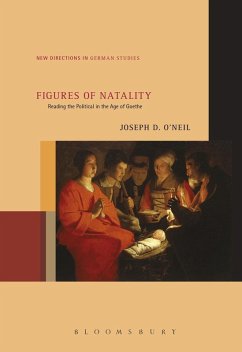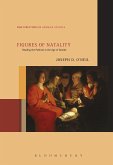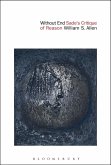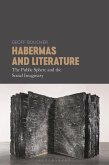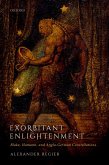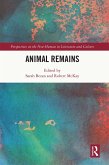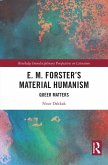Figures of Natality reads metaphors and narratives of birth in the age of Goethe (1770-1832) as indicators of the new, the unexpected, and the revolutionary. Using Hannah Arendt's concept of natality, Joseph O'Neil argues that Lessing, Goethe, and Kleist see birth as challenging paradigms of Romanticism as well as of Enlightenment, resisting the assimilation of the political to economics, science, or morality. They choose instead to preserve the conflicts and tensions at the heart of social, political, and poetic revolutions. In a historical reading, these tensions evolve from the idea of revolution as Arendt reads it in British North America to the social and economic questions that shape the French Revolution, culminating in a consideration of the culture of the modern republic as such.
Alongside this geopolitical evolution, the ways of representing the political change, too, moving from the new as revolutionary eruption to economic metaphors of birth. More pressing still is the question of revolutionary subjectivity and political agency, and Lessing, Goethe, and Kleist have an answer that is remarkably close to that of Walter Benjamin, as that "secret index" through which each past age is "pointed toward redemption." Figures of Natality uncovers this index at the heart of scenes and products of birth in the age of Goethe.
Alongside this geopolitical evolution, the ways of representing the political change, too, moving from the new as revolutionary eruption to economic metaphors of birth. More pressing still is the question of revolutionary subjectivity and political agency, and Lessing, Goethe, and Kleist have an answer that is remarkably close to that of Walter Benjamin, as that "secret index" through which each past age is "pointed toward redemption." Figures of Natality uncovers this index at the heart of scenes and products of birth in the age of Goethe.

